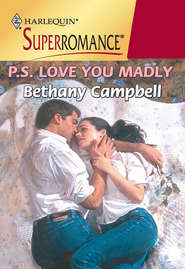По всем вопросам обращайтесь на: info@litportal.ru
(©) 2003-2025.
✖
The Secret Heiress
Настройки чтения
Размер шрифта
Высота строк
Поля
“So said the Gates woman.”
“That’s a jolt. Colie’s such a nice woman. So much for the bloody theory of heredity.”
“Louisa Fairchild’s not a nice woman?”
“The old girl’s a snorter, she is. But now that I think on it, she does bear a certain likeness to Colie. It’s truth.”
Marie remembered the photo and somehow she managed to feel both numbed and anxious at once. “You really know her?”
“I live at a neighboring horse station, not far from her. I’m the handyman there. I’ve actually been in the old girl’s house. Fixed the lock on her famous gun cabinet. She’s an old boiler, she is, a right old hen. But I get some smiles out of her—pruny smiles, but I get ’em.”
Marie didn’t doubt it. If Reynard put his mind to it, he could make a cat laugh. She said, “Gun cabinet? Mama had a clipping about Louisa Fairchild. Something about her shooting a man—do you know about it?”
“All New South Wales knows about it. She said the bloke stormed into her house, raving about water rights, and attacked her. Conveniently, she was cleaning a gun at the time. Said it went off accidental-like.”
“And people believe that?”
“Some do. And some say she got off the hook because she had more money than Whittleson. She could out-lawyer him.”
“What do you think?” Marie asked, frowning in uncertainty.
“I think it’s odd to be cleaning a loaded gun. It’s a point Whittleson’s lawyer never brought up. But lawyers? Pah—they’re about as useful as a third armpit.”
Reynard always resented authority and officials; unlike Colette, he was a born rebel, and it was part of his raffish charm. Marie tried to nudge him further into the subject.
“You’ve met her. Do you think she could shoot somebody?”
“She’s a scrapper. And she can shoot. Rumor says she can blast the head off a snake at thirty meters. Still,” Reynard said silkily, “she’s rich as a queen. No known direct descendants. If she’s your gran, she might open her scrawny arms to you in welcome.”
“I might not open mine,” Marie said. She liked nothing she’d learned about this woman.
“She’s a hard one to know,” he returned. “Not a happy person. Lonesome, I think.”
Reynard’s take on Louisa confused Marie. He sounded critical one moment, sympathetic the next. But he was often mercurial; that was his nature.
“I wonder why Mama waited so long to tell me.”
“I don’t know, pet. But from what you say, I think I’ll drive right up there. She may be franker with me than with you about Louisa Fairchild. I am her baby brother, eh?”
Marie protested, but Reynard insisted. “Today’s Monday. If I start early tomorrow, I can make it in two days. Don’t argue, dear heart. My womenfolk need me!”
My womenfolk need me! He sounded so swashbuckling, she almost smiled.
“You’re sure you won’t lose your job?” she asked.
“Who’d be fool enough to fire a jack-of-all-trades like me?” he said with the same bravado. “I’m indispensable, if I do say so.”
Marie smiled. Although Colette worried about her footloose brother, he always cheered her as no one else could. “Then come to us,” she said.
But shortly after 3:00 a.m., Marie’s phone rang. It was the hospital, calling to inform her that Colette had died in her sleep.
Chapter Three
Marie was stunned, but didn’t cry. What she’d feared most had happened, but it seemed unreal. It was as if she was trapped in a terrible, incomprehensible dream.
She phoned Reynard, who sounded stricken and said he’d be there as soon as he could.
The next morning, zombielike, Marie arranged for her mother’s remains to be cremated. She had it done as soon as possible, without ceremony, for that had been Colette’s wish.
Then, somehow, she went to her classes, still feeling trapped in the numb, unbelievable nightmare. That night she waited tables at the Scepter, functioning on autopilot. But under her business-as-usual facade, she was in a maelstrom of emotion.
All of Marie’s life, it had been the two of them, she and Colette. When the Lafayette family’s fortune failed, Colette went to work as soon as she could and had never stopped. Reynard had left Darwin. Some called him a drifter, but he called himself “a free spirit.”
He returned to visit two or three times a year, and then he’d be off again to wherever his whim took him. He was clever enough to always find a job, too restless ever to keep it long.
By her early thirties, Colette was working as a cook and housekeeper. Lonely and shy, she tried always to please. Finally, in the household of a professor whose wife had left him, she tried too hard. He easily seduced her.
Colette soon found herself pregnant—and unemployed. She didn’t tell Marie who her father was until Marie was ten, and the man had been dead five years.
He’d never acknowledged Marie’s existence, and Colette had never asked him for a thing. So from the beginning of Marie’s life, she and Colette had been a family of two, and Colette had been not only her mother but her closest companion.
That night, the first night that Colette was gone, the stupid busboy, Butch, made a move to grope Marie again.
“Where’s your fancy toff tonight?” he sneered. “Want a real man?” She looked at him in disgust, her expression cold as Antarctica.
“Why are you so uppity?” he demanded. “Think you got the crown jewels between your legs? You’re the same as any other woman.”
She turned and walked away. She was not the same as any other woman. All she knew for certain about Colette’s mother was that the woman had foolishly trusted a man. Result? She’d ended up unmarried and pregnant.
Colette made exactly the same mistake. Result? She’d ended up unmarried and pregnant—but she’d not been one to give up her child.
Two illegitimate generations were enough.
Long ago, Marie vowed she wouldn’t repeat the pattern. She intended never to “fall in love” or into any man’s bed. Ever. Marriage? Married women could be as lonely as single ones. Sometimes lonelier.
It had been completely unlike her, nearly collapsing into a stranger’s arms last night. She wondered if she’d done it because she’d known Colette was dying. Had she known that from the moment Colette put the letter in her hand?
She wanted this empty, unhappy day to be over.
This, too, will pass away, she thought. But it didn’t pass soon enough.
She glanced at her watch, wishing it were midnight. But it was only 7:00 p.m.
On the grounds of Mick’s stud farm, Makem’s Thoroughbreds, Andrew glanced at his watch and wished the night was older and the party over. But it was only 7:00 p.m.
A gorgeous brunette in a tight red sundress leaned against a palm tree watching him, sultry invitation in her gaze. Andrew ignored her. He intended to keep on ignoring her.
A man in the public eye, a man campaigning for an important office, should not fool with women. He knew he shouldn’t have impulsively embraced the waitress in the parking lot last night…yet, still, for some reason, the memory of her rain-misted face haunted him.
“That’s a jolt. Colie’s such a nice woman. So much for the bloody theory of heredity.”
“Louisa Fairchild’s not a nice woman?”
“The old girl’s a snorter, she is. But now that I think on it, she does bear a certain likeness to Colie. It’s truth.”
Marie remembered the photo and somehow she managed to feel both numbed and anxious at once. “You really know her?”
“I live at a neighboring horse station, not far from her. I’m the handyman there. I’ve actually been in the old girl’s house. Fixed the lock on her famous gun cabinet. She’s an old boiler, she is, a right old hen. But I get some smiles out of her—pruny smiles, but I get ’em.”
Marie didn’t doubt it. If Reynard put his mind to it, he could make a cat laugh. She said, “Gun cabinet? Mama had a clipping about Louisa Fairchild. Something about her shooting a man—do you know about it?”
“All New South Wales knows about it. She said the bloke stormed into her house, raving about water rights, and attacked her. Conveniently, she was cleaning a gun at the time. Said it went off accidental-like.”
“And people believe that?”
“Some do. And some say she got off the hook because she had more money than Whittleson. She could out-lawyer him.”
“What do you think?” Marie asked, frowning in uncertainty.
“I think it’s odd to be cleaning a loaded gun. It’s a point Whittleson’s lawyer never brought up. But lawyers? Pah—they’re about as useful as a third armpit.”
Reynard always resented authority and officials; unlike Colette, he was a born rebel, and it was part of his raffish charm. Marie tried to nudge him further into the subject.
“You’ve met her. Do you think she could shoot somebody?”
“She’s a scrapper. And she can shoot. Rumor says she can blast the head off a snake at thirty meters. Still,” Reynard said silkily, “she’s rich as a queen. No known direct descendants. If she’s your gran, she might open her scrawny arms to you in welcome.”
“I might not open mine,” Marie said. She liked nothing she’d learned about this woman.
“She’s a hard one to know,” he returned. “Not a happy person. Lonesome, I think.”
Reynard’s take on Louisa confused Marie. He sounded critical one moment, sympathetic the next. But he was often mercurial; that was his nature.
“I wonder why Mama waited so long to tell me.”
“I don’t know, pet. But from what you say, I think I’ll drive right up there. She may be franker with me than with you about Louisa Fairchild. I am her baby brother, eh?”
Marie protested, but Reynard insisted. “Today’s Monday. If I start early tomorrow, I can make it in two days. Don’t argue, dear heart. My womenfolk need me!”
My womenfolk need me! He sounded so swashbuckling, she almost smiled.
“You’re sure you won’t lose your job?” she asked.
“Who’d be fool enough to fire a jack-of-all-trades like me?” he said with the same bravado. “I’m indispensable, if I do say so.”
Marie smiled. Although Colette worried about her footloose brother, he always cheered her as no one else could. “Then come to us,” she said.
But shortly after 3:00 a.m., Marie’s phone rang. It was the hospital, calling to inform her that Colette had died in her sleep.
Chapter Three
Marie was stunned, but didn’t cry. What she’d feared most had happened, but it seemed unreal. It was as if she was trapped in a terrible, incomprehensible dream.
She phoned Reynard, who sounded stricken and said he’d be there as soon as he could.
The next morning, zombielike, Marie arranged for her mother’s remains to be cremated. She had it done as soon as possible, without ceremony, for that had been Colette’s wish.
Then, somehow, she went to her classes, still feeling trapped in the numb, unbelievable nightmare. That night she waited tables at the Scepter, functioning on autopilot. But under her business-as-usual facade, she was in a maelstrom of emotion.
All of Marie’s life, it had been the two of them, she and Colette. When the Lafayette family’s fortune failed, Colette went to work as soon as she could and had never stopped. Reynard had left Darwin. Some called him a drifter, but he called himself “a free spirit.”
He returned to visit two or three times a year, and then he’d be off again to wherever his whim took him. He was clever enough to always find a job, too restless ever to keep it long.
By her early thirties, Colette was working as a cook and housekeeper. Lonely and shy, she tried always to please. Finally, in the household of a professor whose wife had left him, she tried too hard. He easily seduced her.
Colette soon found herself pregnant—and unemployed. She didn’t tell Marie who her father was until Marie was ten, and the man had been dead five years.
He’d never acknowledged Marie’s existence, and Colette had never asked him for a thing. So from the beginning of Marie’s life, she and Colette had been a family of two, and Colette had been not only her mother but her closest companion.
That night, the first night that Colette was gone, the stupid busboy, Butch, made a move to grope Marie again.
“Where’s your fancy toff tonight?” he sneered. “Want a real man?” She looked at him in disgust, her expression cold as Antarctica.
“Why are you so uppity?” he demanded. “Think you got the crown jewels between your legs? You’re the same as any other woman.”
She turned and walked away. She was not the same as any other woman. All she knew for certain about Colette’s mother was that the woman had foolishly trusted a man. Result? She’d ended up unmarried and pregnant.
Colette made exactly the same mistake. Result? She’d ended up unmarried and pregnant—but she’d not been one to give up her child.
Two illegitimate generations were enough.
Long ago, Marie vowed she wouldn’t repeat the pattern. She intended never to “fall in love” or into any man’s bed. Ever. Marriage? Married women could be as lonely as single ones. Sometimes lonelier.
It had been completely unlike her, nearly collapsing into a stranger’s arms last night. She wondered if she’d done it because she’d known Colette was dying. Had she known that from the moment Colette put the letter in her hand?
She wanted this empty, unhappy day to be over.
This, too, will pass away, she thought. But it didn’t pass soon enough.
She glanced at her watch, wishing it were midnight. But it was only 7:00 p.m.
On the grounds of Mick’s stud farm, Makem’s Thoroughbreds, Andrew glanced at his watch and wished the night was older and the party over. But it was only 7:00 p.m.
A gorgeous brunette in a tight red sundress leaned against a palm tree watching him, sultry invitation in her gaze. Andrew ignored her. He intended to keep on ignoring her.
A man in the public eye, a man campaigning for an important office, should not fool with women. He knew he shouldn’t have impulsively embraced the waitress in the parking lot last night…yet, still, for some reason, the memory of her rain-misted face haunted him.











